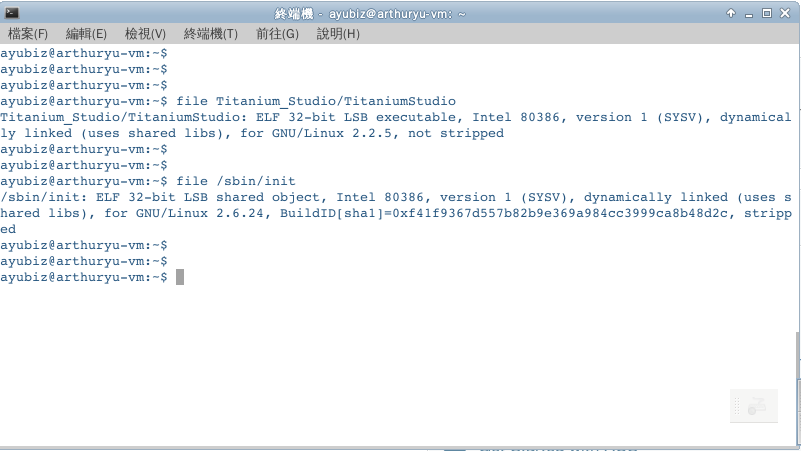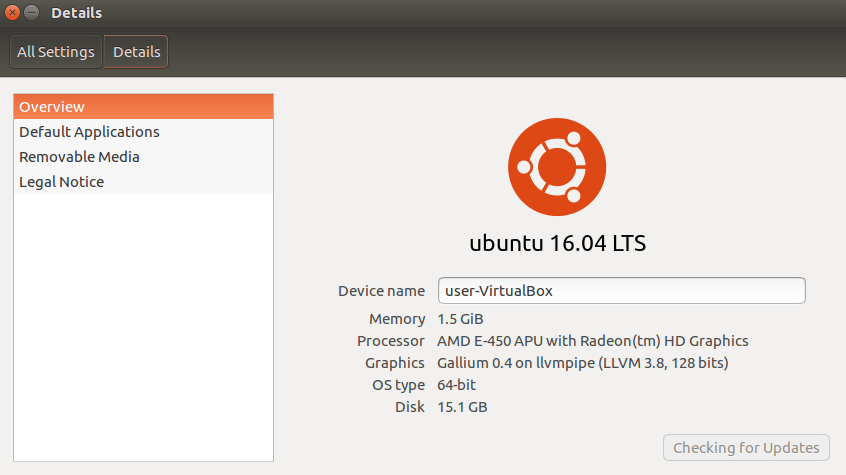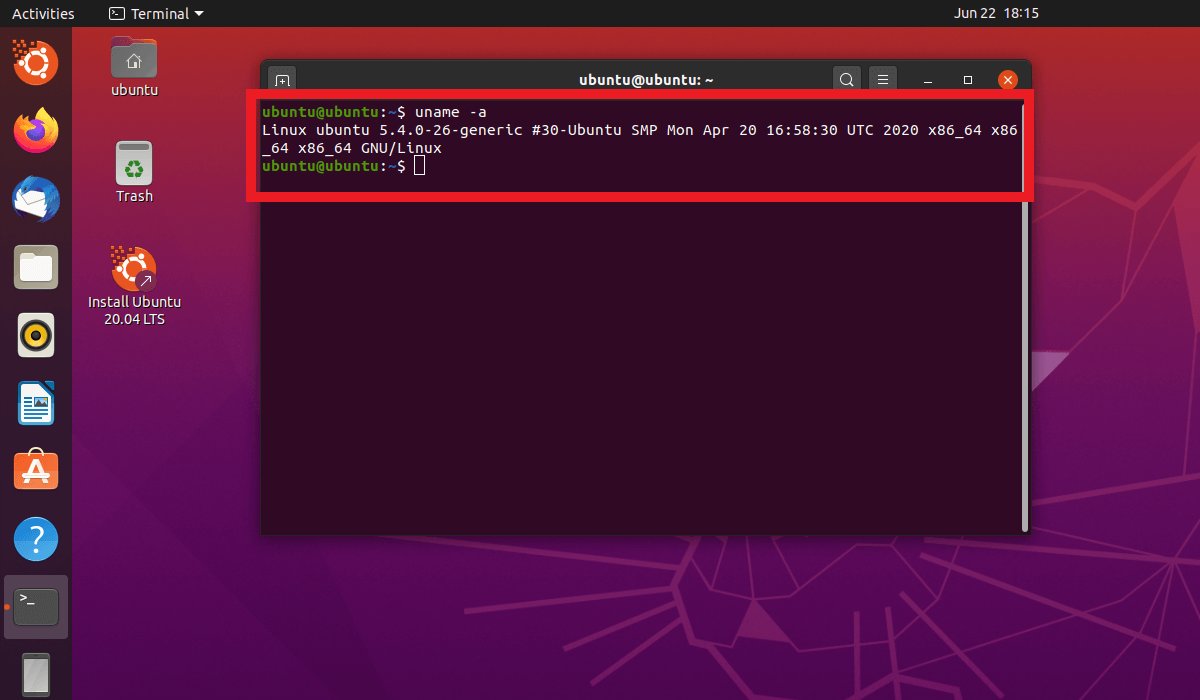
Unzip -l "$jar" | grep 'JndiLookup.class' &>/dev/null & echo "Found vulnerability in $jar"Įxample: # for jar in $(find / -name '*.jar') do The Elastic link above shows how: for jar in $(find / -name '*.jar') do Another line could be added to remove these vulnerabilities but I would rather leave that up to admin discretion.
UBUNTU CHECK VERSION CODE
This will merely show locations where the JndiLookup.class code is found. This is more complete, requires the zip package.
UBUNTU CHECK VERSION INSTALL
Software can install itself in locations not configured in nf and be completely missed by the cron job which updates the locate database.Īlso, it is being discovered that software vendors (like Elastic) have repackaged the vulnerable JndiLookup.class (eg: elasticsearch-sql-cli-7.16.1.jar) in places that were not previously known which leaves solutions incomplete which are built around known file hashes, names or is on the right path here but rather than searching for log4j explicitly, a look in every '.jar' on the system is what's needed.

You cannot rely on the locate command since it only looks in a set of configured paths ( /etc/nf on Debian). I am looking for someone I can transfer the ownership of the repository on GitHubĪll the attempts here to address the vulnerabilities in log4j fall short. There is also a lot development on GitHub, where you find attacks and countermeasures.

Or even compiled versions where the source files aren't even found inside packed archives any more? I am not sure if there could be compiled Java Programs running on the server without java being installed though? Or better check and run the enhanced script from GitHub which also searches inside packed Java files. Make sure your locate database is up to date with updatedb. Otherwise check the listed files and packages." OUTPUT="$(dpkg -l|grep log4j|grep -v log4js)"Įcho " maybe vulnerable, dpkg installed packages:"Įcho "java is installed, so note that Java applications often bundle their libraries inside jar/war/ear files, so there still could be log4j in such applications."Įcho "If you see no output above this line, you are safe. This command also can be used to determine Ubuntu version.Try this script to get a hint: echo "checking for log4j vulnerability."Įcho " maybe vulnerable, those files contain the name:" The hostnamectl command allows to get or set the system hostname. cat /etc/issueĮxtract only Ubuntu version: cat /etc/issue | grep -Po "+" 5.

The /etc/issue file stores a system identification text which is printed after log in to the system. The following command displays only Ubuntu version: cat /etc/os-release | grep PRETTY_NAME | grep -Po "+" 4. This file allows to determine Ubuntu version.

The /etc/os-release file contains operating system identification data. cat /etc/lsb-releaseĬommand to get only Ubuntu version: cat /etc/lsb-release | grep DESCRIPTION | grep -Po "+" 3. It can be used to determine Ubuntu version. The /etc/lsb-release file holds information about distribution. The following command prints only Ubuntu version: lsb_release -d | grep -Po "+" Ubuntu version can be determined only from description. The output of the command will look like this: No LSB modules are available. This command can be used to determine Ubuntu version. The lsb_release command displays LSB (Linux Standard Base) and distribution information.
UBUNTU CHECK VERSION HOW TO
This tutorial shows how to check Ubuntu version. Finding out which Ubuntu version is running on the machine can be useful when troubleshooting problems or installing software.


 0 kommentar(er)
0 kommentar(er)
